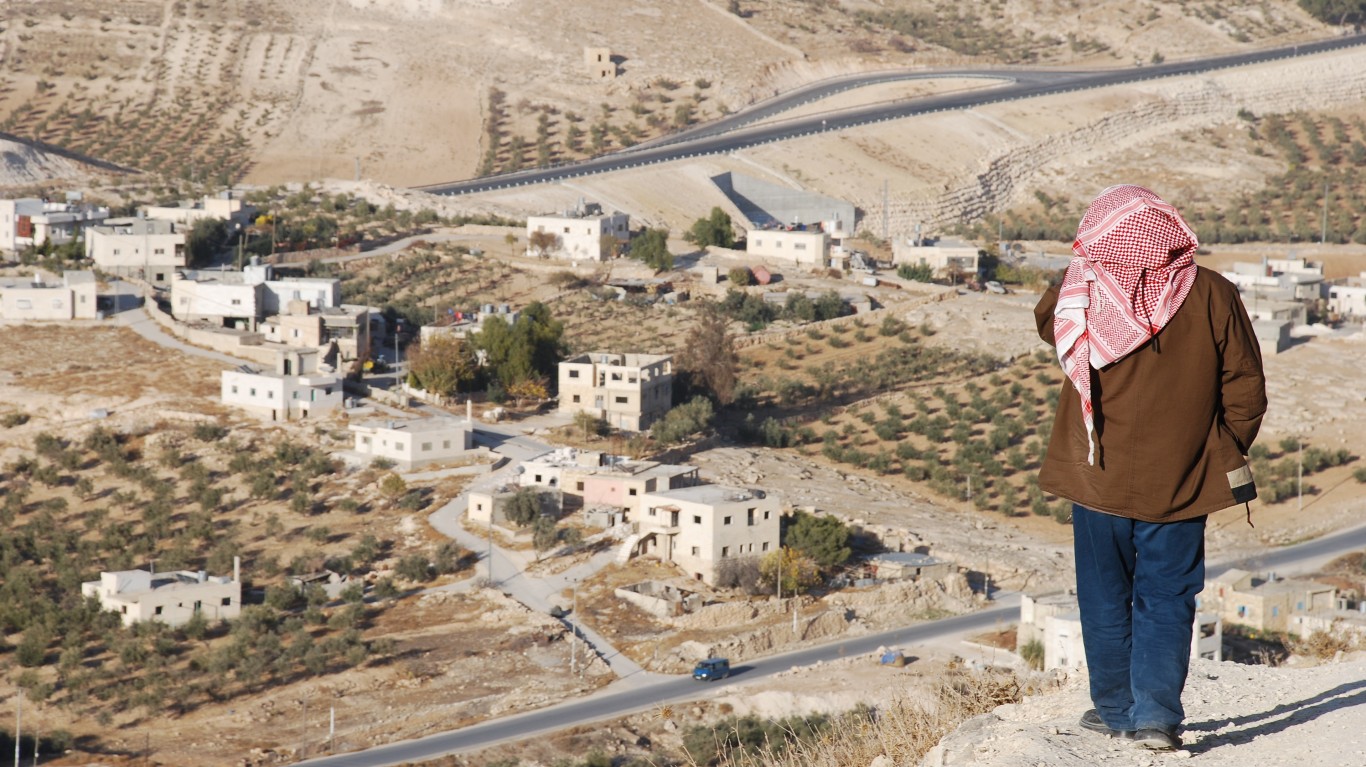

When rockets from Gaza began pounding Israel Saturday, what’s now called the Hamas-Israel war was seen as a sharp step-up in the hostilities between Palestinians and Israel. As the death toll rises, that first view remains accurate but now looks to be incomplete. The battle may have geopolitical roots and has everything to do with oil.
Politically, the attack on Israel is now widely believed to be financed, if not ordered, by Iran. The Washington Post on Monday reported that the attack had been in the planning stages for at least a year. Iran provided training, logistical support and “tens of millions of dollars for weapons,” according to the Post’s sources.
Impact on Negotiations
U.S. and Israeli intelligence officials are searching for evidence that ties Iran firmly to the attack, but none has emerged so far.
One thing is certain, however. The attack on Israel has ended, perhaps permanently, three-way talks between Saudi Arabia, Israel and the United States. The aim of those talks was to normalize relations between Israel and its Arab neighbors. Iran was not at the table, nor were the Palestinians.
[in-text-ad]
Oil May Be the Key
Where does oil fit in? Crude oil is the lever that both Iran and Saudi Arabia hope to control. By cutting daily oil production by 1 million barrels a day almost a year ago, the Saudis had managed to push the price of Brent crude to near $100 a barrel. Iran, though a member of OPEC, almost made up the difference.
According to a Bloomberg report, Iran, Venezuela and Russia, all of which were under U.S. sanctions, have boosted production. Since October of last year, Iranian oil production is up by 700,000 barrels a day.
If those three nations were sanctioned, though, how could they sell all that new production? Here is what Bloomberg’s Javier Blas believes:
Washington turned a blind eye to rising smuggling of Iranian crude, mostly finding its way into China via Malaysia. The priority was an informal détente with Tehran, including a prisoner swap and bringing oil prices lower. Moreover, rising Iranian oil exports were an unacknowledged cost of easing the pain of another set of oil sanctions on Russia.
Blas calculates that Iran increased its oil revenue by $1.5 billion a month by increasing its production. That is $18 billion in one year, more than enough to help its anti-Israel clients like Hamas and Hezbollah.
As of September 30, U.S. oil production has increased by nearly 800,000 barrels a day over the past 12 months. With the combined higher production from U.S. shale, Brazil, Iran and Russia, the global supply did not need the 1 million barrels the Saudis were withholding.
What Saudi Arabia Wants
The Saudis, however, need (or want) the money that is now going to Iran. To make that happen, it has to convince the United States to challenge Iran. One way to do that is to tie Tehran to last weekend’s attack on Israel. (See the 15 secret wars the United States is involved in now.)
Neither Saudi Arabia nor Iran is averse to fighting a proxy war. The two nations supported different sides in the years-long fighting in Yemen. It was only in October of last year, after eight years of conflict, that the two countries restored diplomatic relations.
For Saudi Arabia, proof that Iran was behind the attack would compel the United States to impose and enforce stricter sanctions on Iranian and Russian oil. That could drive the price of oil up to around $100 a barrel, a level the Saudis would be happy to see.
Iran threatens to close the Strait of Hormuz, choking off the flow of oil from the Persian Gulf. Implicit in that threat is that Iran can continue to avoid sanctions on its oil sales.
Saudi oil revenue depends on a tougher U.S. position on Iran. Following an initial jump of around 4% to $89 a barrel following the attack on Israel, Brent crude, the international benchmark, traded at around $87 early Wednesday. That is not the direction the Saudis want to see oil prices move in.
ALERT: Take This Retirement Quiz Now (Sponsored)
Take the quiz below to get matched with a financial advisor today.
Each advisor has been vetted by SmartAsset and is held to a fiduciary standard to act in your best interests.
Here’s how it works:
1. Answer SmartAsset advisor match quiz
2. Review your pre-screened matches at your leisure. Check out the advisors’ profiles.
3. Speak with advisors at no cost to you. Have an introductory call on the phone or introduction in person and choose whom to work with in the future
Take the retirement quiz right here.
Thank you for reading! Have some feedback for us?
Contact the 24/7 Wall St. editorial team.


